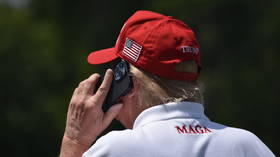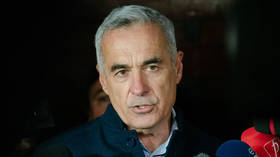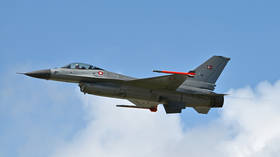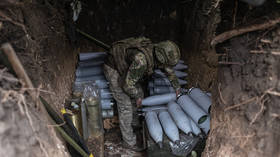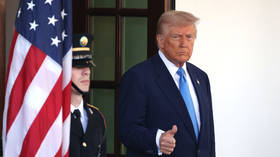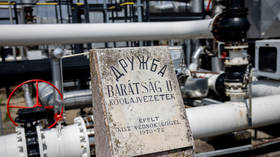Russia’s answer to US sanctions is to make its economy more self-sufficient – analysts
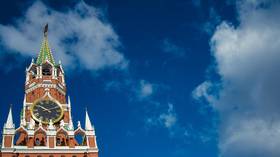
As Washington threatens to impose more sanctions on Russia, analysts expect Moscow’s response to be the same as usual – speeding up the drive to make the nation’s economy more self-sufficient.
“The Americans are saying: be careful or we could do more, but Russia is just going to continue down the path toward economic autarky,” the deputy chief economist at the Institute of International Finance in Washington, Elina Ribakova, told Bloomberg.
The administration of US President Joe Biden on Sunday warned of “consequences” if opposition activist Alexey Navalny were to die in prison. The warning followed the introduction by Washington of new economic penalties over claims of Russian hacking and election interference. The measures include a ban on purchases of bonds on Russia’s primary market.
Also on rt.com Biden calls for de-escalation of tensions with Russia following sanctions over unproven charges of hacking & election meddlingHowever, President Vladimir Putin’s spokesman, Dmitry Peskov, said on Friday that the fundamentals of the Russian economy were unaffected by the move. “Macroeconomic stability is fully ensured,” Peskov said, “and the efficiency of our economic bloc is recognized internationally. We have no reason to doubt this state of affairs.”
International rating agencies confirm that Russia is well positioned for a near-term market disruption because it has a high cash buffer and demand from local banks is robust, according to Fitch. Moody’s said on Monday that Russia’s financial reserves will allow the country to cope with the negative effects of the sanctions. Ratings agency S&P also noted that the sanctions will not have a significant impact on the replenishment of the Russian budget and will not undermine the stability of the country’s financial markets.
Also on rt.com Russia developing financial battle plan in case of Western attack on economy or sanctions against sovereign debt, diplomat revealsExperts point out that during the seven years of Western sanctions on Russia over Ukraine, the Russian government and central bank reduced the country’s exposure to dollars, shifted assets out of the US, and sold a smaller share of its debt to foreigners.
Russia has been reshaping its international holdings, cutting the share of the US dollar in favor of other currencies and gold. The country’s foreign reserve holdings have been steadily growing in recent years, and amounted to $580.5 billion as of April 9. Despite the coronavirus pandemic, the reserves surged by over $40 billion last year.
The share of gold in Russia’s forex reserves jumped above dollars for the first time on record in 2020. The precious metal made up 24% of the central bank’s stockpile as of the end of September. The share of dollar assets was 22%, down from more than 40% in 2018.
Also on rt.com Russia’s National Wealth Fund gets greenlight for gold investments as Moscow pursues de-dollarization policyThe share of Russia’s international reserves held in the United States plummeted to just under 7% by the end of September, down from about 30% in 2014.
As part of President Putin’s plan to de-dollarize trade, Russia has also been cutting back on the use of the greenback in its exports with the EU, China, and India. The euro has almost overtaken the dollar in Russia’s trade with the EU, and has already surpassed it in exports to China. About two-thirds of Russia’s exports to India are currently paid for in rubles.
For more stories on economy & finance visit RT's business section




